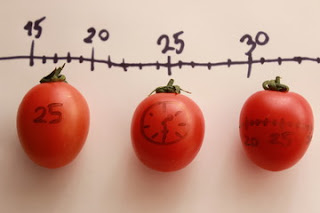How to Get Motivated to Study: 10 Tips for Students Who Procrastinate
How to get motivated to study? Is it difficult for you to get inspired to study?
Let’s face it…
It’s so easy to watch just one more movie or to scroll through your social networking feed just one more time. However, your exams are coming fast. You have a rising sense of panic, but you don’t know where to start. The more you panic, the harder it is to get to work. If this is the case you’re in, keep reading.
In this article, I’m going to clarify 10 proven strategies that successful students use to motivate themselves to study.
1. Discover why you procrastinate
Procrastinating on your schoolwork is a complex issue that can have many different causes.
Here are some of the most common:
You have convinced yourself that your homework is beyond your skills.
Putting off your homework is a way of rebelling against your parents or teachers
You have determined the topic is boring
You are waiting for the”perfect” time to begin
The task has become so overwhelming that you don’t know where to start
Understanding why you procrastinate is a key first step to getting motivated.
Spend some time reflecting on what makes you procrastinate. This will enable you to identify which of the following ideas will help you the most.
2. Break the material down into chunks.
A major source of procrastination is the task ahead seems overwhelming.
That is when you need to”chunk down”. Split each task into small chunks.
Assign yourself a certain number of those chunks every day. Suddenly, you’re no longer confronted with a scary task, but rather a set of manageable chunks.
A chunk may be reading three pages of your textbook, completing five multiple-choice questions, or finding three reference articles on the Internet for your paper.
3. Reward yourself
Every time you complete a couple of chunks, reward yourself with a brief period of relaxation.
It could be five minutes in your favorite smartphone game, a short walk, or playing the guitar.
Rewarding yourself with brief and fun breaks is a vital part of the”chunking down” technique.
4. Make a study routine
We’re creatures of habit. When it’s a challenge for you to get inspired to study, you can put this principle to work for you. Habits are so powerful that once you develop a study routine, you’ll find it difficult to go into relaxation mode without studying.
How should you go about creating a study routine?
The first thing to do is to set up a study schedule. Be aware, however, that habits are not formed overnight.
Research indicates that it typically takes 20 to 30 days to form a habit. So you’ll need to put in some work before this technique pays off. One of the best ways to get motivated to research is to be very clear about why you want to get good grades.
5. Create a list of the reasons that you want to do well academically.
I want to learn more and develop myself
I Would like to get into a good college or programme
I want to have a meaningful career
I want to provide well for my family and my parents at the future
I want to know that I gave it my best shot
I want to live with no regrets
Write down your own list of reasons for studying hard, and put the list at your study desk.
Then, when you’re feeling unmotivated, read the list one more time.
6. Use a mind map to populate the data.
If you are like most people, chances are you’ve been educated to use lists to summarise information.
As such, it might seem natural to use lists to summarise the information you’re studying. But there are times when mind maps are more powerful than lists as a way of organising information. Because mind maps mimic the way the brain works. When you create a mind map, you’re mapping out the way your brain has processed a certain topic. This makes it easier to get a handle on the topic. It will also make it easier for you to retrieve that information when you need it. You can create a mind map with pen and paper. But if you would like to do it in your phone, tablet or computer, you can use a program like SimpleMind.
7. Make a”boring” subject interesting
When you find it difficult to study because the subject is”dull”, ask yourself:
“Is the subject really dull, or does it appear that way because I’ve closed my mind to it?”
As G.K. Chesterton once said:”There are no dull subjects, only disinterested minds.”
If you believe a subject is boring, try to engage with the subject by asking yourself questions.
When was this technique or theory developed?
Who developed it?
What problem did it solve?
How would the world be different today if not for this technique or theory?
If you ask the right questions, you can make any subject interesting.
8. Know the topic, don’t just memorise it
Know a topic – One of the secrets to successful studying is to create an understanding of a topic rather than just memorising facts. In some scenarios, rote memorisation may be required. But, in general, the more years spent in college, the more you will be expected to understand relationships and connections between different concepts. This will require you to apply principles to a given set of facts, or to draw conclusions from a given set of facts. Understanding a topic is a lot more rewarding than memorising it. So this approach to studying isn’t only more successful — it will keep you motivated.
9. Look for gaps in your understanding
Try giving a mini-presentation on a topic to a friend or relative. You can do it in a formal way, or you could simply talk to them about the topic. By doing this, you will deepen your knowledge. But you’ll also realise quickly if there are gaps in your understanding of the topic.
As Albert Einstein once said,”If you can not explain it simply, you don’t understand it well enough.”
10. Study in short bursts
Research shows that we learn better if we study in brief bursts. It’s called”spaced learning”, and the concept behind it’s that learning involves the creation of memories. Memories are formed through connections between neurons. In order for these memories to become embedded, the neurons need to be left undisturbed for a period of time. That’s why we learn better in short bursts of analyzing. This approach gives the neurons time to”lay down” these new memories.
Follow these tips for analyzing smart — not hard — and you will soon be on your way to becoming a successful student who doesn’t procrastinate!
Like this report? Please discuss it with your friends










